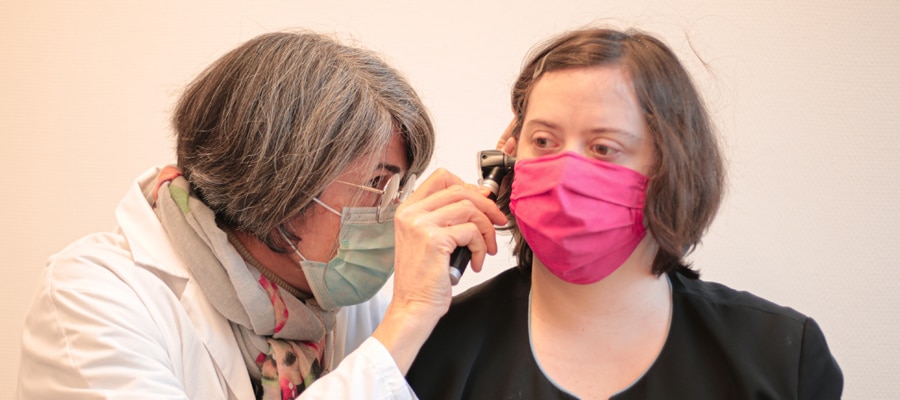The Project
This research project aims to study the characteristics – especially clinical – of patients with T21 monitored by the Jérôme Lejeune Institute and who have been infected with SARS-CoV-2
Study Context
People with trisomy 21 have a higher risk of airway infections, especially infections caused by flu and respiratory syncytial virus.1 COVID-19 presents a wide range of clinical signs, from slight flu-like symptoms to severe interstitial pneumonia.2
The international investigation carried out by the Trisomy 21 Research Society (T21RS) – in which the Jérôme Lejeune Institute is participating – shows that people with trisomy 21 have a higher risk of a serious form of COVID-19 beyond the age of 40 years old and/or if certain comorbidities are present (especially diabetes, obesity, Alzheimer’s disease, etc.). The response of people with trisomy 21 to this infection is not yet well understood, especially from a clinical perspective.
1. Respiratory syncytial virus: a virus causing usually mild seasonal community-acquired respiratory affections.
2. Interstitial pneumonia: a respiratory affection linked to disease of the lung interstitium, i.e. the tissue between the alveoli.
Study Objectives
The objectives of the T21 and COVID+ study are:
- To describe the characteristicsof patients with T21 monitored by the Jérôme Lejeune Institute who have had a diagnosed SARS-CoV-2 infection
- To assess the profileof patients who contracted a severe or lethal form, compared to the profile of people with other forms (moderate or asymptomatic).

